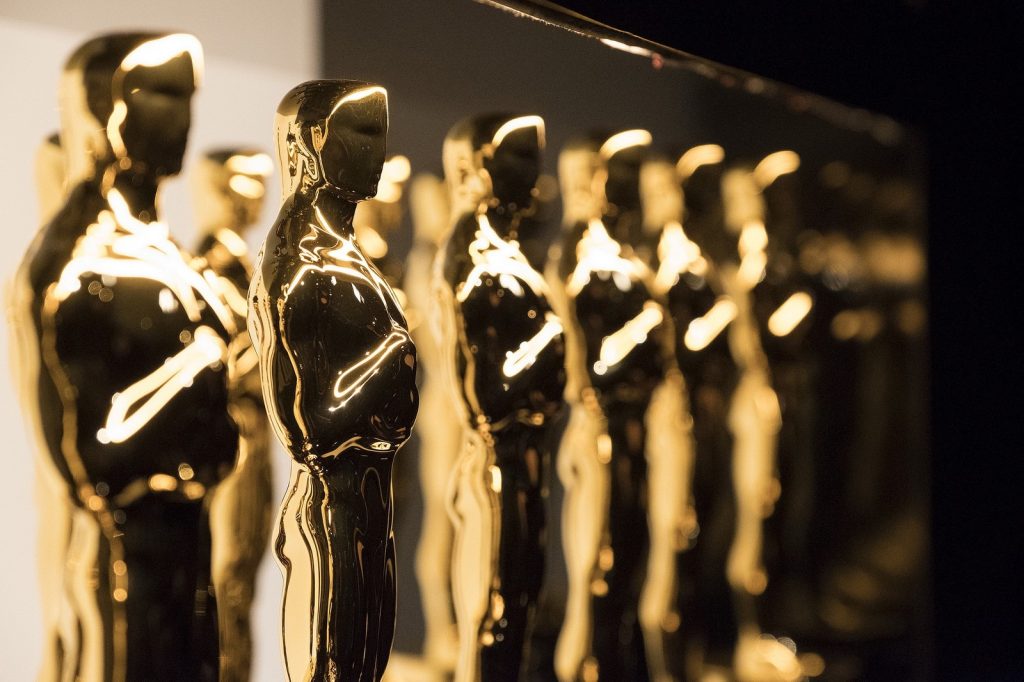
(ABC/Adam Rose)
Every year around this time, hopeful “small” films embark on a long journey, fighting for the spotlight at festivals such as Sundance, Berlinale, and Cannes. A few of them race until the very end: the award season that wraps up with the prestigious Academy Awards ceremony.
A couple of remarkable alternative films are in the mix this time, and we’ve gathered the top 5 performances you shouldn’t miss.
Melissa McCarthy in Can You Ever Forgive Me?
McCarthy portrays Lee Israel: a real author who sabotaged her own career after forging, stealing and selling more than 400 letters of famous writers. Her only friend, Jack Hock (brilliant Richard E. Grant), tells her blatantly: “I don’t think you are a very nice person,” and Lee doesn’t even try to object. She is a bitter, resigned alcoholic, eventually even a criminal after all.
Perhaps not so ironically, there is a glimpse of joy in her when she embodies her writing heroes within the sensational fake letters — when she’s not Lee. “I’m a better Dorothy Parker than Dorothy Parker,” she claims, proud of her near-perfect forgeries.
It’s a story full of self-pity and bitterness, but Lee’s unusual friendship with Jack shows us who she used to be before she grew her thick skin. They are not inherently bad, although they are egoists. Both are simply busy surviving, and coincidentally, they are both gay. While their sexual orientation is not central to the plot, it is a cornerstone of their identity, isolation, and misery: perhaps of their connection as well.
Rachel Weisz in The Favourite
It apparently doesn’t “take balls” to juggle ruling the country, a marriage and a secret relationship with Queen Anne herself. Weisz transforms into the downright terrifying, yet feminine Lady Sarah — the right hand to the frail, needy and childish Queen. You could say that Sarah is a power-hungry mistress of manipulation who uses the weak queen, but their complicated relationship goes way beyond that. Sarah rarely does what she doesn’t want to, and prefers the truth and pragmatism over the constant attention and cheap flattery (the unforgettable “You look like a badger!”) that Anne craves. She oscillates between bossy and tender, cruel and loving, ruthless and vulnerable, continually keeping the viewers, her lover and the mostly male court on their toes.
Weisz has received the Oscar nomination along with her co-stars, Olivia Colman and Emma Stone, and we could easily highlight any of them. It’s a fearless ensemble which complements each other portraying women in all their complexity — with a refreshing dose of nastiness included.
The cast of Shoplifters (Lily Franky, Sakura Andô, Mayu Matsuoka, Jyo Kairi, Miyu Sasaki, Kirin Kiki)
This Japanese gem challenging a definition of a family caught the attention of the whole world after the director Hirokazu Koreeda won Palme d’Or at Cannes Film Festival. “We were completely bowled over by Shoplifters. How intermeshed the performances were with the directorial vision,” the jury president Cate Blanchett explained. Now, it has shot at the Oscars in the Foreign Language Film category.
Hirokazu Koreeda tells a story of a poor family that gets by thanks to stealing, sticking to the moral code they have created. They even “steal” — according to them, save — an abused little girl they found freezing on a balcony. Koreeda brought together a cast that radiates the intimacy of a family despite the unique circumstances connecting them. The actors convey the emotions that make you wonder whether being related by blood even matters. They showcase that to raise a child with love isn’t the same as to raise a child well, and that survival instinct can provoke cruelty and kindness at once.
Adam Driver in BlacKkKlansman
Driver stars as Flip Zimmerman who is helping his colleague Ron, the first African-American policeman in Colorado, to infiltrate the Ku Klux Klan. Flip is Jewish — something he never really thought about until he finds himself surrounded by racists and anti-semites. Flip is pretending to be someone else most of the time we see him on screen, and one can feel how the conflict slowly intensifies deep within him. This mission was supposed to be just a job, yet it’s impossible not to identify with his heritage: especially when a particularly aggressive KKK member starts suspecting he’s Jewish.
Driver himself has admitted that he was drawn to the character because of his internal struggle: “I love the idea of your heritage becoming important to you at different times in your life. Flip doesn’t internalize his job, maybe to self-preserve. And when Flip goes undercover and has to say these terrible things out loud, it affects him. I don’t know how it couldn’t. So he has to face those questions,” he explained for the Los Angeles Times.
Glenn Close in The Wife
Glenn Close has been nominated for an Academy Award seven times. She’s already won a Golden Globe and a Screen Actors Guild Award for The Wife — 2019 might be the year she finally adds an Oscar to her collection.
Close’s “wife” Joan has spent her life besides a great man: a best-selling author Joseph Castleman. The elderly couple seems as in love as when they first met, Joan being a rock to Joe who cannot function without her. When the phone rings with an announcement that Joe has received a Nobel Prize, the look in Joan’s eyes is not exactly a joyous one, but it’s not exactly envious either. As the couple travels to Sweden for the award ceremony, Joan’s composed self starts to crack.
As her layers peel back, she exudes frustration of a remarkably intelligent woman — a talented writer herself — standing in the shadow of her husband. She loves him deeply nevertheless, and she politely smiles while he’s showered with praise, hiding her pain when Joe repeatedly calls her the love of his life, his sanity, his inspiration… Yet again reducing her to the wife who “doesn’t write”, when in fact, the glory should rightfully be hers.
It’s a powerful performance that was 14 years in the making. “It was actually hard to find actors who wanted to be in a movie called The Wife. It’s two women writers, the novelist and screenwriter, and, you know, starring a woman. No one wanted to do it and, most of the money, if not all the money, came from Europe,” Close said to the Hollywood Reporter.
Dig into remarkable movies and performances at Filmzie. Join us NOW.
